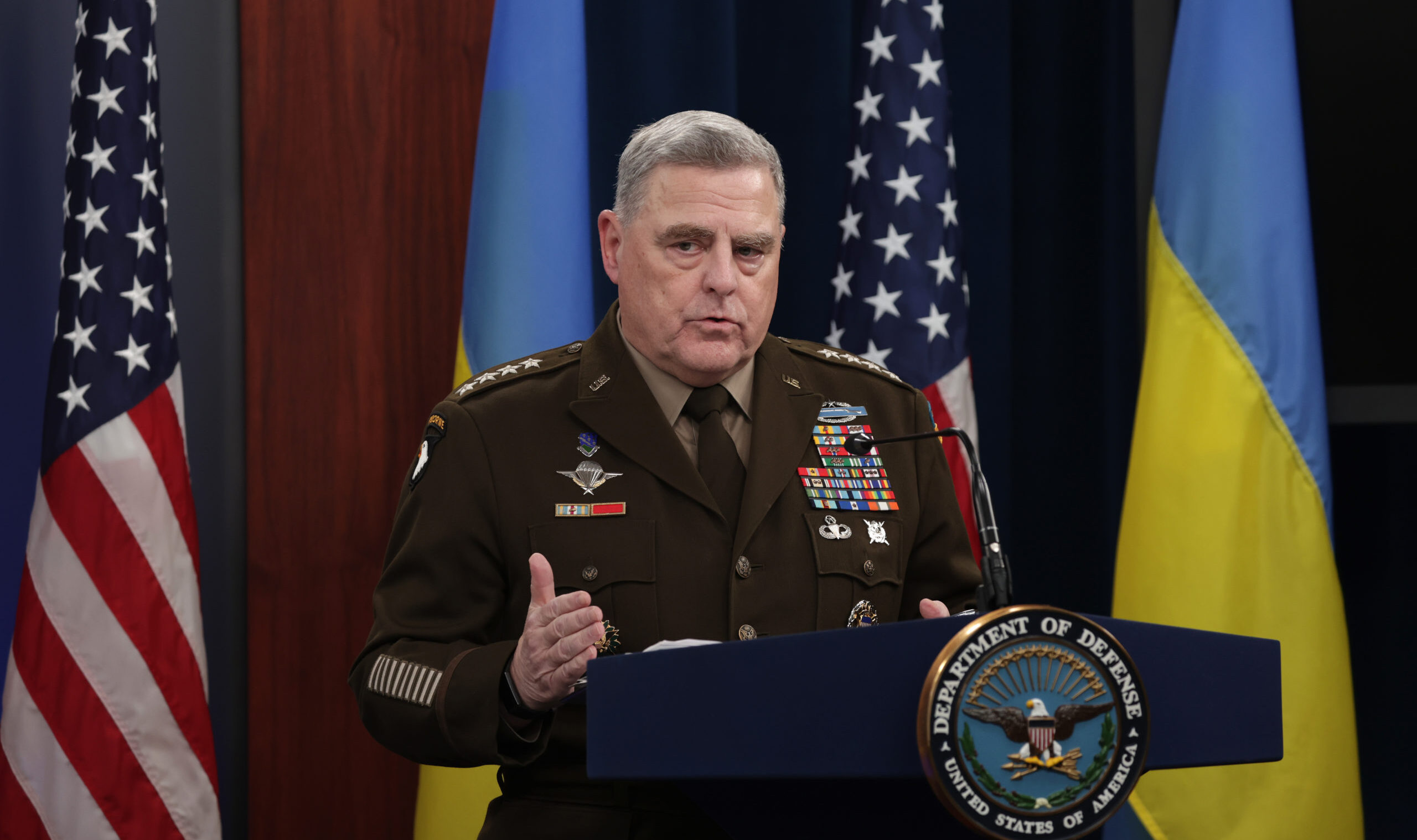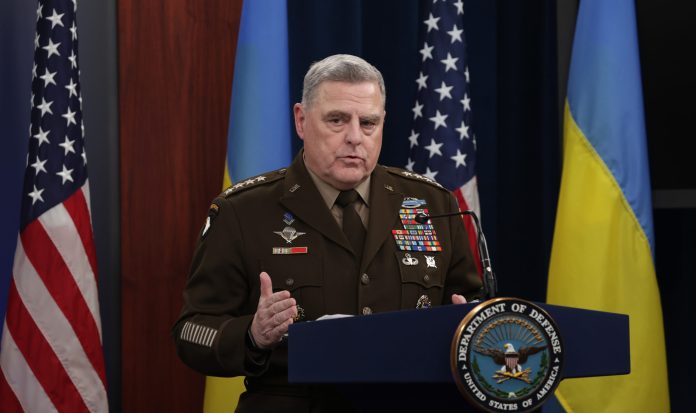
The day the first U.S. ATACMs from Ukraine landed in Russia, making it the first time in the postwar era a U.S.-guided and U.S.-target-coordinated weapons system landed anywhere within Russian landmass, another bomb dropped without much fanfare but far more significance. Gallup released a poll showing that, for the first time since the conflict began, a majority of Ukrainians want to negotiate with Russia and end the conflict.
Within that group, a large portion wants to cede territory to Russia. “A fair share of Ukrainians who favor negotiating a quick end to the war believe Ukraine should be open to ceding some territory in exchange for peace. More than half of this group (52 percent) agrees that Ukraine should be open to making some territorial concessions as part of a peace deal to end the war, while 38 percent disagree and another 10 percent don’t know,” Gallup reported. To contrast, in 2022, 73 percent of Ukrainians preferred fighting until victory, without, of course, defining what victory is. That has obviously changed.
The penny has clearly dropped, even though the narrative remains wobbly. President Volodymyr Zelensky, who campaigned with Kamala Harris and Governor Josh Shapiro, got on Fox News to say that Ukraine stands to lose the war if Washington, its main military backer, pulls funding. Only a few days ago, he signaled that he is ready to end the war with Russia through diplomacy next year. His embassy is still toeing the “any negotiation is appeasement” line. On this side of the Atlantic, however, that sentiment has decreasing purchase. Representative Keith Self (R-TX) tweeted, “Americans do not want WWIII. I am demanding a classified briefing from @POTUS regarding Ukraine’s use of US-supplied ATACMS. If the White House does not comply, I will move to conduct immediate oversight.” Senator-elect Bernie Moreno agreed: “Americans overwhelmingly voted for Trump, sent a loud and clear message: we want Ukraine war to end, for killing to stop, and for peace. Trump will do that. Biden dramatically escalated the war and set up Trump to inherit a greater conflict. Disgraceful and extremely dangerous.”
The Biden administration’s decision to allow Ukraine to use long-distance weaponry in Russia seemed to be one borne out of malice rather than strategy. An intention to box the incoming president to an escalatory path, although neither the theater nor the threat assessment changed in the past few months per the Biden administration’s own intelligence assessment. It is of course not going to improve Ukraine’s position, even while it might influence Russian disproportionate reaction and a lowering of the nuclear threshold.
Ukrainians have read the writing on the wall, as evident from the Gallup poll. The Europeans have made overtures to reach out to Moscow. The only plausible reason for the latest massive surge is to sabotage the president-elect’s desire to deescalate the conflict, which is the mandate of the American people, if not the intentions of Biden’s own coterie of uber-hawks. The responsibility for this conflict falls squarely on those who ignored Russia’s redlines about Ukraine joining NATO. The perpetuation of that is a recurrence of the same strategic impulse that led to 20 years of nation-building in the sands. As Elbridge Colby tweeted, “Those whose assessments and counsel have proved woefully erroneous and have materially and culpably contributed to this grievous situation in Ukraine now resort to distortion and falsehood for those of us whose diagnoses and recommendations were more sound.”
It shouldn’t have been. Speaking at a meeting of the Ukraine Contact Group at the tail end of 2022, General Mark Milley, then the chairman of the joint chiefs of staff, wanted Ukraine to sue for peace when they were ahead in the battlefield. That year ended badly for Russia, with their major ships sunk, their advance on Kiev thwarted, and their defensive lines stretched thin. “You want to negotiate at a time when you’re at your strength, and your opponent is at weakness. And it’s possible, maybe, that there’ll be a political solution. All I’m saying is there’s a possibility for it,” Milley said. “When there’s an opportunity to negotiate, when peace can be achieved, seize it.”
The reaction was immediate and overwhelming. Facing criticism from the White House, Ukraine, and an array of think tankers, Milley had to clarify his comments. But his instinct was always correct. Months later he still stuck on to his original assessment.
Subscribe Today
Get daily emails in your inbox
“When you cannot achieve your political objective through military means, then the moral thing to do is to seek an alternative means, which is diplomacy,” Milley said in an in-depth interview. “You have two core vital international security interests at stake for Russia and for Ukraine, for Ukraine, it’s existential. It’s the very survival of the state. For Russia, it’s different, but they defined it as a core national security interest. What the Russians are trying to do is re-establish a buffer and so on.”
As it currently stands, Ukraine cannot sustain a long conflict, and there is no incentive for a NATO–Russia general war. A continuation of this conflict will needlessly kill many thousands, and lead to escalation with NATO. “The war is devoid of moral purpose,” Milley said.
He was right then. When one thinks of conservative realism, Milley’s face isn’t the one that comes to mind. But on this one particular subject, an instinct to negotiate and sustain an equilibrium and avoid a great power general war, he seems to channel his inner Lord Lansdowne. On this point, history demands an apology for Milley.


